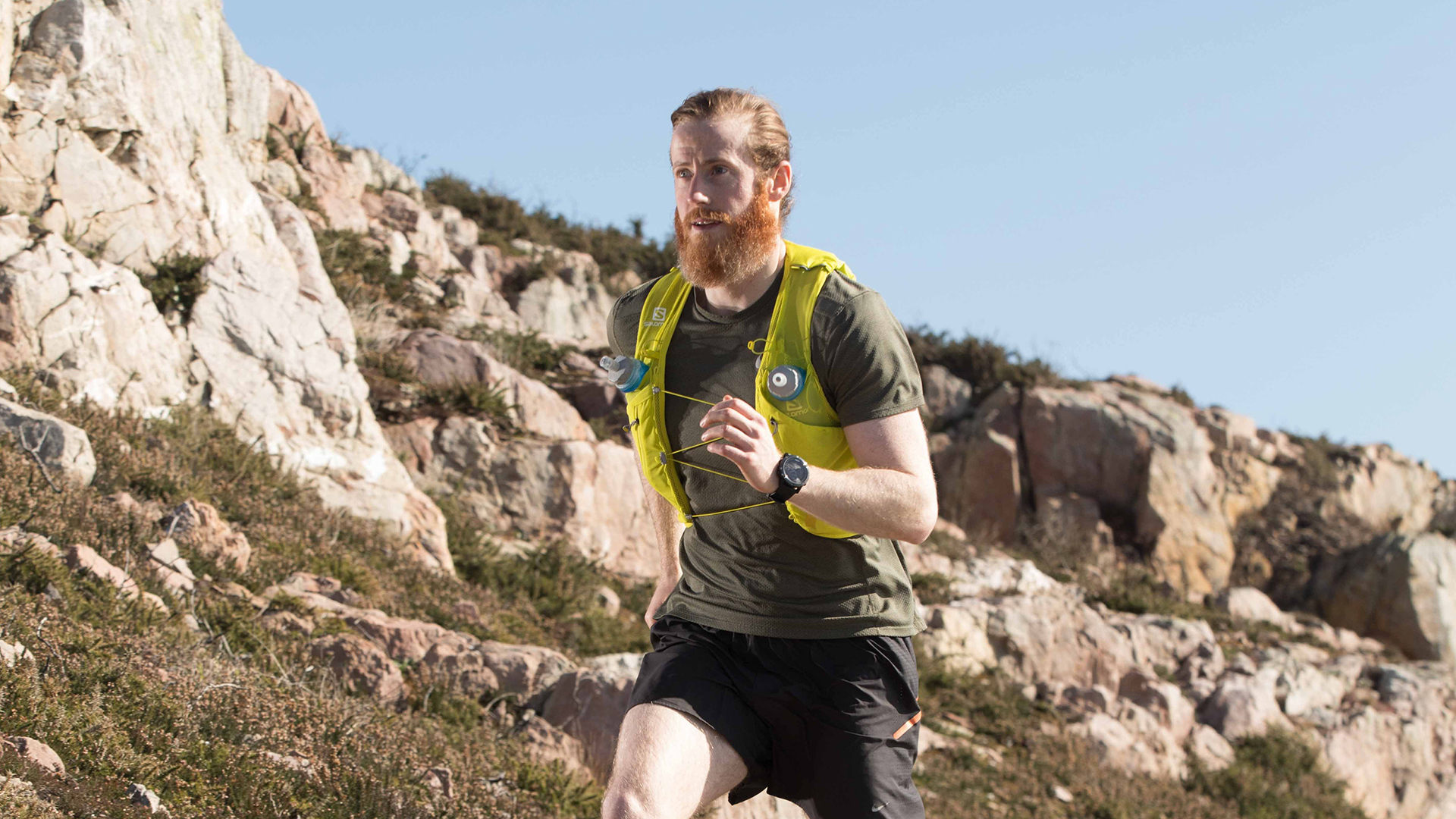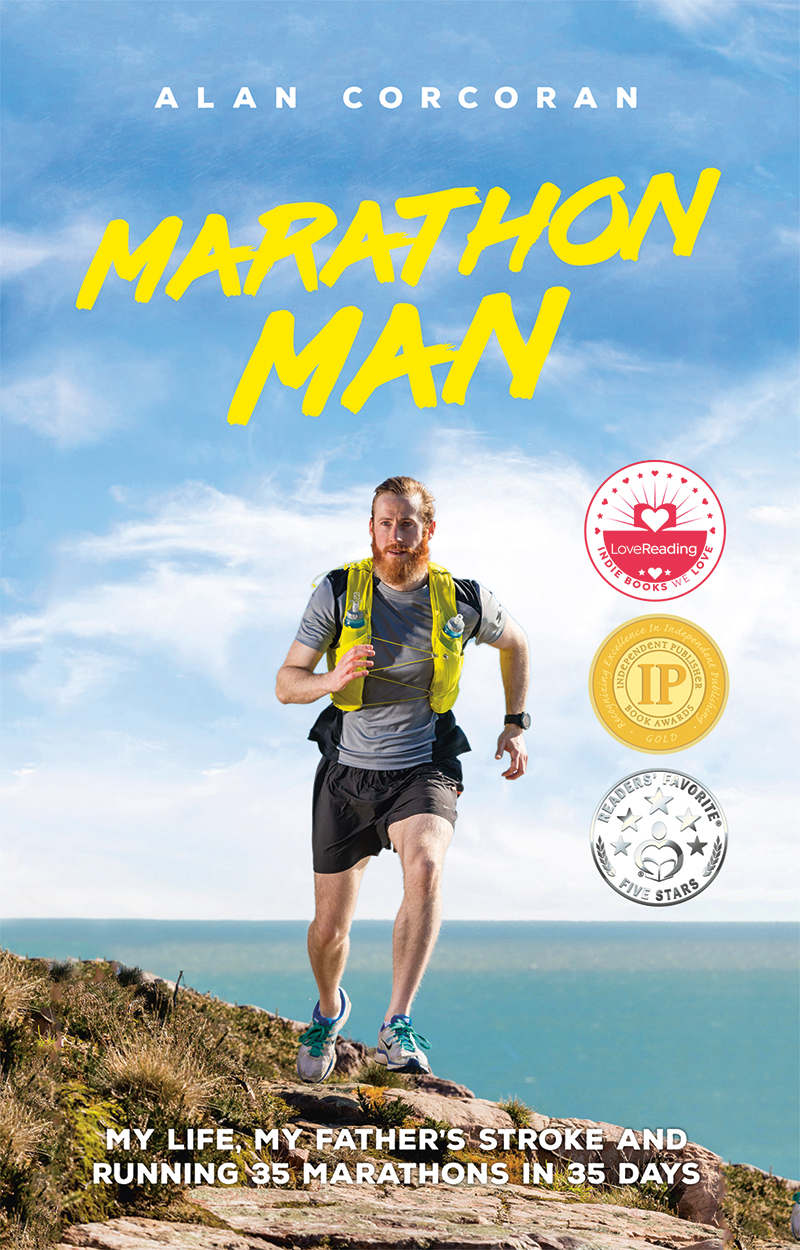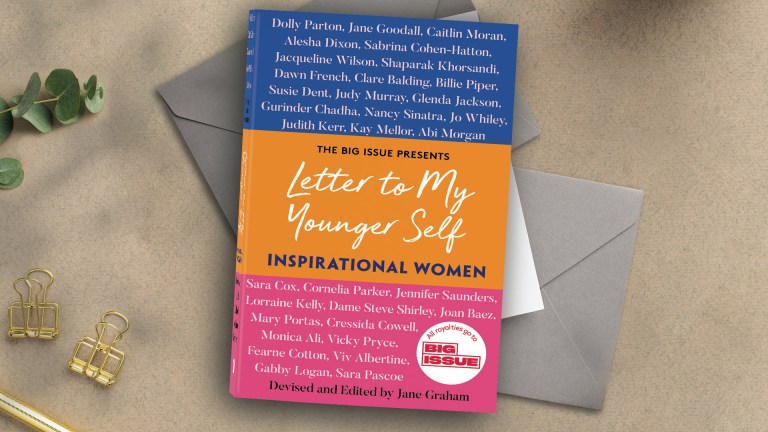I was always a runner, from escaping my cot as a baby to having ants in my pants as a toddler to getting into athletics aged eight after a poor performance at the school sports day. The wooden spoon prize turned out to be a blessing in disguise. The loss spurred me on to join the local sprinting group. I came back and won the 100-metre race the following year, and, years later, I represented Ireland in sprints and multi-events, accruing a few national titles along the way.
I didn’t make the grade when I entered the senior competition level and, like many, quit running at university. Then my dad, Milo, suffered a stroke when he was 60, and I was 20. It turned my world on its head. Dad’s and my mortality crashed into focus, and his health crisis compelled me to act.
Inspired by Eddie Izzard’s Sports Relief TV show, where Eddie ran a heap of marathons untrained, I signed myself up to try to run a lap of Ireland – 35 marathons in 35 consecutive days. The effort would raise funds for the Irish Heart Foundation’s stroke awareness campaign, the National Rehabilitation Hospital’s stroke rehab unit and the Football Village of Hope, a charity my dad helped establish. The challenge and positive mission invigorated me at my lowest and returned a sense of control.
Time felt precious. I gave myself a foolhardy deadline of less than a year to attempt the feat because stroke recurrence is common, especially in that first year, and I wanted my dad to be an integral part of it. The slight problem was that I’d never run a 26.2-mile-marathon or a half-marathon. The furthest I’d ever run was 10 miles as a one-off school fundraiser event as a teenager.
As my dad began his near-impossible journey from hospital bed incapacitation to stroke rehabilitation, I took to the roads and trails, clocking slow miles on my feet. Before my official training began, I signed up for the Dublin City Marathon to see what the fuss was about, with four weeks of cramming done. Though I finished in 04:13:00, I’d have felt better if a heavyweight rugby player tackled me head-on. I was bedridden for days and gravely concerned about my upcoming challenge now that I was better informed about long-distance running.
Many people know the sacrifice to run one marathon. My crash course to prepare myself for 35 consecutive marathons was intense. I started at 30 miles per week and climbed to 116 miles per week, ticking off 10 solo training marathons, including a 39-mile ultra-marathon around the spectacular Connemara wilderness. Still, there was a monumental question mark over whether my body would hold for five weeks of covering 26.2 miles per day on the concrete – 183.4 miles per week.










